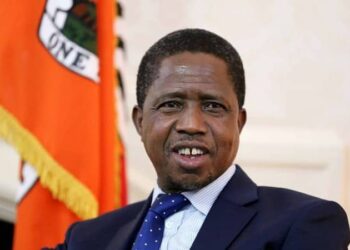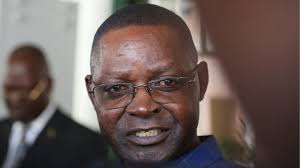Botswana’s new president was inaugurated on Friday in a swift transfer of power following elections that resulted in a historic defeat for the party that had ruled the diamond-rich nation for nearly 60 years.
Duma Boko, a 54-year-old human rights attorney, was sworn in during a private ceremony at the chief justice’s office just three days after the elections, which led to the ousting of the Botswana Democratic Party (BDP).
In a live broadcast on state television, Boko delivered an acceptance speech and press briefing, outlining key campaign promises, including plans to more than double the minimum wage to P4,000 (approximately $300) and to introduce universal health insurance.
The new president expressed his commitment to building investor confidence and fostering relationships with mining companies operating in Botswana, while also emphasizing the need to diversify the country’s diamond-dependent economy as a crucial step toward stabilizing its financial situation.
He mentioned that a public inauguration ceremony would take place in the future and stated, “The presidency is a responsibility one approaches with humility and trepidation. I dare not fail. I dare not disappoint.”
ALSO READ: Zimbos react as Nick Mangwana congratulates opposition after Botswana’s Masisi accepts defeat
Earlier on the same day, outgoing president Mokgweetsi Masisi acknowledged his party’s defeat after late-night results from Wednesday’s general election indicated that the BDP— in power since Botswana gained independence from Britain in 1966— would not secure enough parliamentary seats to form a government.
Boko, who has dedicated three decades to opposition politics in his efforts to unseat the BDP, commended the peaceful transfer of power as a testament to democracy at work.
“What transpired today elevates our democracy,” he told the independent Mmegi newspaper. “This successful, peaceful, and orderly transition demonstrates the active participation and endorsement of every citizen in this country.”
The BDP’s loss represents a significant setback for Masisi, 63, who was elected in 2018 and had anticipated winning a second term.
“We misjudged the situation from the perspective of the people,” Masisi admitted. “We were confident in our message, but it’s clear that I cannot claim we will form a government.”
“I will respectfully step aside and ensure a smooth and transparent transition ahead of the inauguration,” he stated.
Voter concerns included rising unemployment, now at 27 percent, and a struggling economy partly caused by declining diamond sales, which constitute Botswana’s primary source of revenue. Economic growth is projected to slow to one percent this year.
Masisi’s administration faced allegations of corruption, nepotism, and mismanagement, with the World Bank noting that the wealth gap in Botswana is among the largest globally.
This marks Boko’s third bid for the presidency. He founded the United Democratic Coalition (UDC) in 2012 to unite opposition parties against the entrenched BDP.
“CHANGE IS HERE,” he declared on Facebook as the coalition’s significant electoral success became evident, prompting small celebrations in parts of the capital, Gaborone, on Friday morning.
The Mmegi outlet celebrated the victory as a new dawn for Botswana, stating, “Botswana’s new dawn as Boko and the UDC rise.”
Civic expectations are high. “We are expecting more from this new Botswana,” said Pelontle Ditshotlo, a 41-year-old cleaner, who criticized the BDP for failing to keep its promises amidst rising living costs. “When you are in parliament, we need to know that you listen to us, you are with us.”
For many, the change feels transformative. “It’s a relief,” said Sandy Mlotshwa, a 22-year-old waiter. “I want to see if the new administration will bring genuine change. If not, we will seek change again.”










